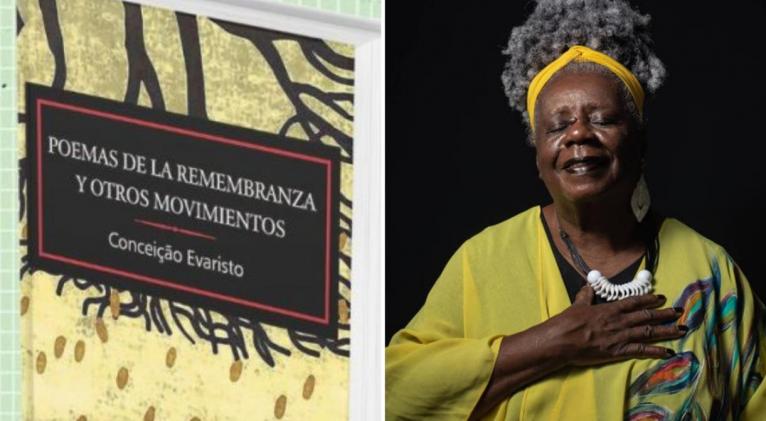Poems of remembrance and other movements
especiales

The Arte y Literatura Publishing House, in its collection Lira, suggests Poemas de la remembranza y otros movimientos (Poems of remembrance and other movements), by Brazilian writer Conceiçao Evaristo, a text that may well mean a sort of entryway to a creation rooted in the very rich heritage of a culture with strong African roots, which blossomed, nonetheless, in that huge, wonderful land named Brazil.
Conceiçao Evaristo is one of the top Brazilian writers at present. She is an undisputable reference of a lyric movement that places the black individual (with particular emphasis on women), with their demands and dreams, in the epicenter of a complex system of cultural relations.
Evaristo does not spend too much of her time in the dalliances of love, although she speaks of love in these pages. In any case, passion and desire make up a varied framework, in which visions of poverty, religiosity and pain come together in powerful poems, with a marked rhythmic sense.
They are recreations of a collective experience: there is here a fine vocation of social criticism, which is never radicalized in propaganda shows.
Essentiality: that’s Conceição Evaristo's great value of creation. Every text invites you to travel beyond the epidermis of its letters. There is a commitment to emotion and feeling in this diving into those “submerged worlds, into which only the silence of poetry penetrates,” according to the author.
Evaristo was born in a favela. She was a domestic worker and found time to read books from the public library where an aunt of hers worked. She concluded her first studies in Belo Horizonte and decided to move to Rio de Janeiro. That was the beginning of a path: she ended up graduating in Literature.
Later rather than sooner, her stories and poems caught the attention of critics and the public. There was a powerful voice in those texts, which denounced, with arduous beauty, discrimination based on skin color, prejudices, inequalities, mistreatment...
She always shied away from folkloric expressions. Hers was never a pyrotechnic evocation, postcards for tourists. She dealt with the future of the human being in the face of the overwhelming burden of existence, in the face of the injustice and exclusion that many suffer, in the face of more or less obvious racism, but clinging to hope, no matter how deceptive it seemed.
The history and implications of slavery, the diaspora, the demanding need to belong to a place, a culture... are some of the edges of her narrative and her poetry.
At first, before learning how to read, she listened to the stories of her relatives at home, a mixture of reality and daydreams. Later she discovered that books could treasure infinite stories.
And she embraced literature as a bastion. Not as a space to wallow in pain, but as an option for roots, for permanence.
Poems of remembrance and other movements is sold in the bookstore system of the Cuban Book Institute.
Translated by Sergio A. Paneque Díaz / CubaSí Translation Staff














Add new comment